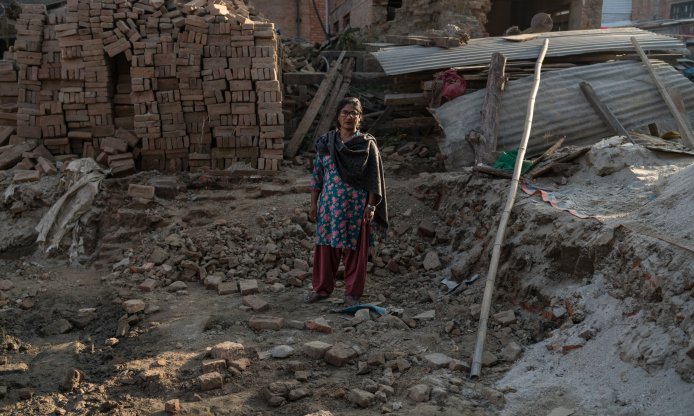News - Nepal
Good practices in hand washing are essentials to keep a global healthy community. In the scope of the Rain community project, Kanchan Nepal is...

With climate change, rainfall (monsoons) is likely to become more intense and dry spells longer in Nepal. It is therefore crucial to rethink rainfall management to better anticipate too much or too little rain.
Partners
In collaboration with Kanchan Nepal, FECOFUN, Pokhara Metropolitan, DWSS
Projects
Emergency Rain, Blue School, Rain Community




Intervention areas
Kaski region, Pokhara
Chitwan region, Tobang
Conferences
WEEC 2018, IWA2019
In the coming years, Nepal is expected to see an increase in the frequency and intensity of rainfall. In addition, there will be a risk of drought and an increase in intensity of weather events. The first effects of these changes are already being felt. (UNFCCC, 2014)
Nepal, nestled in the Himalayas, is one of the poorest countries in the world. Villagers and rural communities still depend on rain for their crops. However, climate change has begun to affect these vulnerable communities. Water sources have begun to dry up, monsoons have become more frequent, more intense, sometimes wiping out crops in all years. Rainfall patterns have changed, with more variable rainfall and longer alternating dry spells exposing subsistence agriculture.
Water is essential for life. A reliable supply is crucial for the long-term survival of mountain villages. Rainwater harvesting helps natural springs to recharge. These springs can provide water to villagers for longer periods of the year. The water is used for cooking, drinking and washing. Rainwater stored near the house provides an additional resource for drinking, growing vegetables and other crops. It can be used to water fields and livestock.
The "rain communities" project aims to improve the general state of ecosystems and the living conditions and resilience of rural communities in Nepal.

The aim of the Blue Schools is to sensitize schoolchildren to water management, sanitation and good hygiene practices, as well as to waste recovery in order to make the Blue Schools incubators of social change.

This project aims to improve the resilience of rainfed communities to the hazards of climate change, through optimization of water resources and restoration of degraded ecosystems at the basin scale
Read More
In order to support the reconstruction efforts and respond to the needs of the populations in terms of access to water and hygiene.following the devastating earthquake that hit Nepal in April 2015, Guthi and IRHA have developed the "Emergency Rain" project.